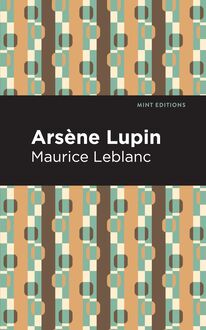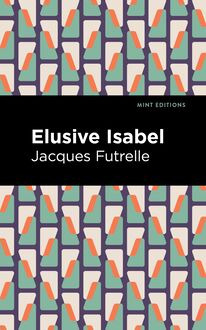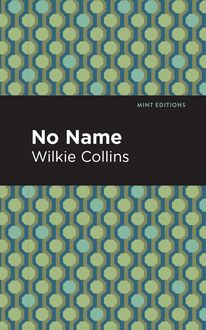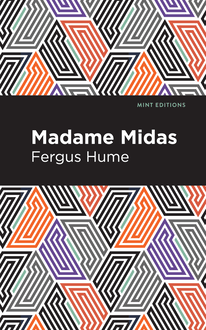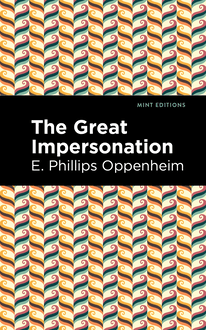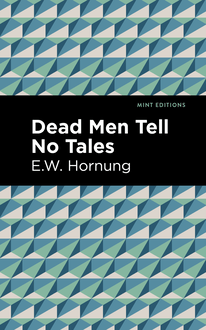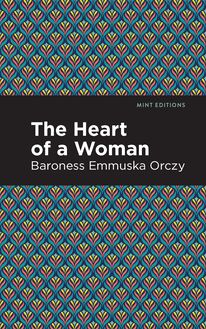-
 Univers
Univers
-
 Ebooks
Ebooks
-
 Livres audio
Livres audio
-
 Presse
Presse
-
 Podcasts
Podcasts
-
 BD
BD
-
 Documents
Documents
-
- Cours
- Révisions
- Ressources pédagogiques
- Sciences de l’éducation
- Manuels scolaires
- Langues
- Travaux de classe
- Annales de BEP
- Etudes supérieures
- Maternelle et primaire
- Fiches de lecture
- Orientation scolaire
- Méthodologie
- Corrigés de devoir
- Annales d’examens et concours
- Annales du bac
- Annales du brevet
- Rapports de stage
La lecture à portée de main
Vous pourrez modifier la taille du texte de cet ouvrage
Découvre YouScribe en t'inscrivant gratuitement
Je m'inscrisDécouvre YouScribe en t'inscrivant gratuitement
Je m'inscrisEn savoir plus
Vous pourrez modifier la taille du texte de cet ouvrage
En savoir plus

Description
The recently married Valeria Brinton uncovers an unsettling truth about her new husband, including a false identity and the potential murder of his first wife. Valeria is determined to solve the mystery of her husband’s previous marriage and presumed guilt.
Shortly after her wedding, Valeria Brinton learns her husband, Eustace Woodville, has been living a lie. His real name is Eustace Macallan and he was previously accused of murdering his first wife. Although he wasn’t convicted, the Scottish verdict “not proven” left plenty of room for speculation. Yet, Valeria is committed to her husband and believes he’s innocent. Despite the naysayers, she embarks on a journey to find the truth, clearing Eustace’s name once and for all.
The Law and the Lady is one of Wilkie Collins classic detective novels. It’s a timeless tale of perseverance despite the looming judgement of nineteenth century society. The protagonist’s unwavering faith and inquisitive nature makes for a compelling read that captivates one’s spirit and imagination.
With an eye-catching new cover, and professionally typeset manuscript, this edition of The Law and the Lady is both modern and readable.
Sujets
Informations
| Publié par | Mint Editions |
| Date de parution | 08 décembre 2020 |
| Nombre de lectures | 0 |
| EAN13 | 9781513274263 |
| Langue | English |
Informations légales : prix de location à la page 0,0500€. Cette information est donnée uniquement à titre indicatif conformément à la législation en vigueur.
Extrait
The Law and the Lady
Wilkie Collins
The Law and the Lady was first published in 1875.
This edition published by Mint Editions 2020.
ISBN 9781513269269 | E-ISBN 9781513274263
Published by Mint Editions®
minteditionbooks.com
Publishing Director: Jennifer Newens
Design & Production: Rachel Lopez Metzger
Typesetting: Westchester Publishing Services
C ONTENTS P ART 1. P ARADISE L OST 1. T HE B RIDE ’ S M ISTAKE 2. T HE B RIDE ’ S T HOUGHTS 3. R AMSGATE S ANDS 4. O N T HE W AY H OME 5. T HE L ANDLADY ’ S D ISCOVERY 6. M Y O WN D ISCOVERY 7. O N T HE W AY TO THE M AJOR 8. O N T HE W AY TO THE M AJOR 9. T HE D EFEAT OF THE M AJOR 10. T HE S EARCH 11. T HE R ETURN TO L IFE 12. T HE S COTCH V ERDICT 13. T HE M AN ’ S D ECISION 14. T HE W OMAN ’ S A NSWER P ART 2. P ARADISE R EGAINED 15. T HE S TORY OF THE T RIAL . T HE P RELIMINARIES 16. F IRST Q UESTION —D ID T HE W OMAN D IE P OISONED ? 17. S ECOND Q UESTION —W HO P OISONED H ER ? 18. T HIRD Q UESTION —W HAT W AS H IS M OTIVE ? 19. T HE E VIDENCE FOR THE D EFENSE 20. T HE E ND OF THE T RIAL 21. I S EE M Y W AY 22. T HE M AJOR M AKES D IFFICULTIES 23. M Y M OTHER -I N -L AW S URPRISES M E 24. M ISERRIMUS D EXTER —F IRST V IEW 25. M ISERRIMUS D EXTER —S ECOND V IEW 26. M ORE OF M Y O BSTINACY 27. M R . D EXTER AT H OME 28. I N T HE D ARK 29. I N T HE L IGHT 30. T HE I NDICTMENT OF M RS . B EAULY 31. T HE D EFENSE OF M RS . B EAULY 32. A S PECIMEN OF MY W ISDOM 33. A S PECIMEN OF MY F OLLY 34. G LENINCH 35. M R . P LAYMORE ’ S P ROPHECY 36. A RIEL 37. A T T HE B EDSIDE 38. O N T HE J OURNEY B ACK 39. O N T HE W AY TO D EXTER 40. N EMESIS AT L AST 41. M R . P LAYMORE IN A N EW C HARACTER 42. M ORE S URPRISES 43. A T L AST ! 44. O UR N EW H ONEYMOON 45. T HE D UST -H EAP D ISTURBED 46. T HE C RISIS D EFERRED 47. T HE W IFE ’ S C ONFESSION 48. W HAT E LSE C OULD I D O ? 49. P AST AND F UTURE 50. T HE L AST OF T HE S TORY
PART 1
PARADISE LOST
Chapter 1
T HE B RIDE ’ S M ISTAKE
“For after this manner in the old time the holy women also who trusted in God adorned themselves, being in subjection unto their own husbands; even as Sarah obeyed Abraham, calling him lord; whose daughters ye are as long as ye do well, and are not afraid with any amazement.”
Concluding the Marriage Service of the Church of England in those well-known words, my uncle Starkweather shut up his book, and looked at me across the altar rails with a hearty expression of interest on his broad, red face. At the same time my aunt, Mrs. Starkweather, standing by my side, tapped me smartly on the shoulder, and said,
“Valeria, you are married!”
Where were my thoughts? What had become of my attention? I was too bewildered to know. I started and looked at my new husband. He seemed to be almost as much bewildered as I was. The same thought had, as I believe, occurred to us both at the same moment. Was it really possible—in spite of his mother’s opposition to our marriage—that we were Man and Wife? My aunt Starkweather settled the question by a second tap on my shoulder.
“Take his arm!” she whispered, in the tone of a woman who had lost all patience with me.
I took his arm.
“Follow your uncle.”
Holding fast by my husband’s arm, I followed my uncle and the curate who had assisted him at the marriage.
The two clergymen led us into the vestry. The church was in one of the dreary quarters of London, situated between the City and the West End; the day was dull; the atmosphere was heavy and damp. We were a melancholy little wedding party, worthy of the dreary neighborhood and the dull day. No relatives or friends of my husband’s were present; his family, as I have already hinted, disapproved of his marriage. Except my uncle and my aunt, no other relations appeared on my side. I had lost both my parents, and I had but few friends. My dear father’s faithful old clerk, Benjamin, attended the wedding to “give me away,” as the phrase is. He had known me from a child, and, in my forlorn position, he was as good as a father to me.
The last ceremony left to be performed was, as usual, the signing of the marriage register. In the confusion of the moment (and in the absence of any information to guide me) I committed a mistake—ominous, in my aunt Starkweather’s opinion, of evil to come. I signed my married instead of my maiden name.
“What!” cried my uncle, in his loudest and cheeriest tones, “you have forgotten your own name already? Well, well! let us hope you will never repent parting with it so readily. Try again, Valeria—try again.”
With trembling fingers I struck the pen through my first effort, and wrote my maiden name, very badly indeed, as follows:
Valeria Brinton
When it came to my husband’s turn I noticed, with surprise, that his hand trembled too, and that he produced a very poor specimen of his customary signature:
Eustace Woodville
My aunt, on being requested to sign, complied under protest. “A bad beginning!” she said, pointing to my first unfortunate signature with the feather end of her pen. “I hope, my dear, you may not live to regret it.”
Even then, in the days of my ignorance and my innocence, that curious outbreak of my aunt’s superstition produced a certain uneasy sensation in my mind. It was a consolation to me to feel the reassuring pressure of my husband’s hand. It was an indescribable relief to hear my uncle’s hearty voice wishing me a happy life at parting. The good man had left his north-country Vicarage (my home since the death of my parents) expressly to read the service at my marriage; and he and my aunt had arranged to return by the mid-day train. He folded me in his great strong arms, and he gave me a kiss which must certainly have been heard by the idlers waiting for the bride and bridegroom outside the church door.
“I wish you health and happiness, my love, with all my heart. You are old enough to choose for yourself, and—no offense, Mr. Woodville, you and I are new friends—and I pray God, Valeria, it may turn out that you have chosen well. Our house will be dreary enough without you; but I don’t complain, my dear. On the contrary, if this change in your life makes you happier, I rejoice. Come, come! don’t cry, or you will set your aunt off—and it’s no joke at her time of life. Besides, crying will spoil your beauty. Dry your eyes and look in the glass there, and you will see that I am right. Good-by, child—and God bless you!”
He tucked my aunt under his arm, and hurried out. My heart sank a little, dearly as I loved my husband, when I had seen the last of the true friend and protector of my maiden days.
The parting with old Benjamin came next. “I wish you well, my dear; don’t forget me,” was all he said. But the old days at home came back on me at those few words. Benjamin always dined with us on Sundays in my father’s time, and always brought some little present with him for his master’s child. I was very near to “spoiling my beauty” (as my uncle had put it) when I offered the old man my cheek to kiss, and heard him sigh to himself, as if he too were not quite hopeful about my future life.
My husband’s voice roused me, and turned my mind to happier thoughts.
“Shall we go, Valeria?” he asked.
I stopped him on our way out to take advantage of my uncle’s advice; in other words, to see how I looked in the glass over the vestry fireplace.
What does the glass show me?
The glass shows a tall and slender young woman of three-and-twenty years of age. She is not at all the sort of person who attracts attention in the street, seeing that she fails to exhibit the popular yellow hair and the popular painted cheeks. Her hair is black; dressed, in these later days (as it was dressed years since to please her father), in broad ripples drawn back from the forehead, and gathered into a simple knot behind (like the hair of the Venus de Medicis), so as to show the neck beneath. Her complexion is pale: except in moments of violent agitation there is no color to be seen in her face. Her eyes are of so dark a blue that they are generally mistaken for black. Her eyebrows are well enough in form, but they are too dark and too strongly marked. Her nose just inclines toward the aquiline bend, and is considered a little too large by persons difficult to please in the matter of noses. The mouth, her best feature, is very delicately shaped, and is capable of presenting great varieties of expression. As to the face in general, it is too narrow and too long at the lower part, too broad and too low in the higher regions of the eyes and the head. The whole picture, as reflected in the glass, represents a woman of some elegance, rather too pale, and rather too sedate and serious in her moments of silence and repose—in short, a person who fails to strike the ordinary observer at first sight, but who gains in general estimation on a second, and sometimes on a third view. As for her dress, it studiously conceals, instead of proclaiming, that she has been married that morning. She wears a gray cashmere tunic trimmed with gray silk, and having a skirt of the same material and color beneath it. On her head is a bonnet to match, relieved by a quilling of white muslin with one deep red rose, as a morsel of positive color, to complete the effect of the whole dress.
Have I succeeded or failed in describing the picture of myself which I see in the glass? It is not for me to say. I have done my best to keep clear of the two vanities—the vanity of depreciating and the vanity of praising my own personal appearance. For the rest, well written or badly written, thank Heaven it is done!
And whom do I see in the glass standing by my side?
I see a man who is not quite so tall as I am, and who has the misfortune of looking older than his years. His forehead is prematurely bald. His big chestnut-colored beard and his long overhanging mustache are prematurely streaked with gray. He has the color in the face which my face wants, and the firmness in his figure which m
-
 Univers
Univers
-
 Ebooks
Ebooks
-
 Livres audio
Livres audio
-
 Presse
Presse
-
 Podcasts
Podcasts
-
 BD
BD
-
 Documents
Documents
-
Jeunesse
-
Littérature
-
Ressources professionnelles
-
Santé et bien-être
-
Savoirs
-
Education
-
Loisirs et hobbies
-
Art, musique et cinéma
-
Actualité et débat de société
-
Jeunesse
-
Littérature
-
Ressources professionnelles
-
Santé et bien-être
-
Savoirs
-
Education
-
Loisirs et hobbies
-
Art, musique et cinéma
-
Actualité et débat de société
-
Actualités
-
Lifestyle
-
Presse jeunesse
-
Presse professionnelle
-
Pratique
-
Presse sportive
-
Presse internationale
-
Culture & Médias
-
Action et Aventures
-
Science-fiction et Fantasy
-
Société
-
Jeunesse
-
Littérature
-
Ressources professionnelles
-
Santé et bien-être
-
Savoirs
-
Education
-
Loisirs et hobbies
-
Art, musique et cinéma
-
Actualité et débat de société
- Cours
- Révisions
- Ressources pédagogiques
- Sciences de l’éducation
- Manuels scolaires
- Langues
- Travaux de classe
- Annales de BEP
- Etudes supérieures
- Maternelle et primaire
- Fiches de lecture
- Orientation scolaire
- Méthodologie
- Corrigés de devoir
- Annales d’examens et concours
- Annales du bac
- Annales du brevet
- Rapports de stage
